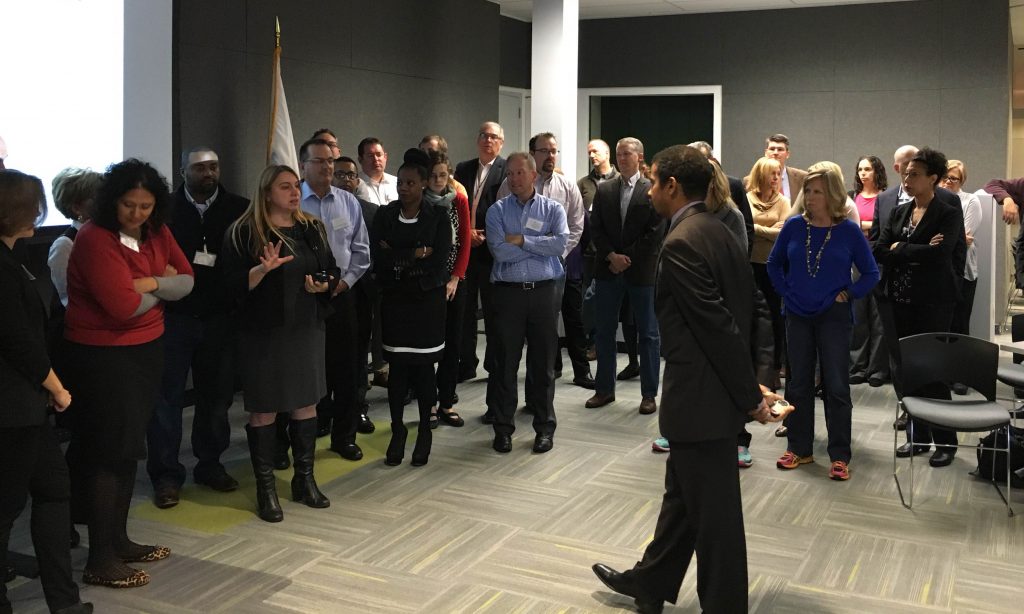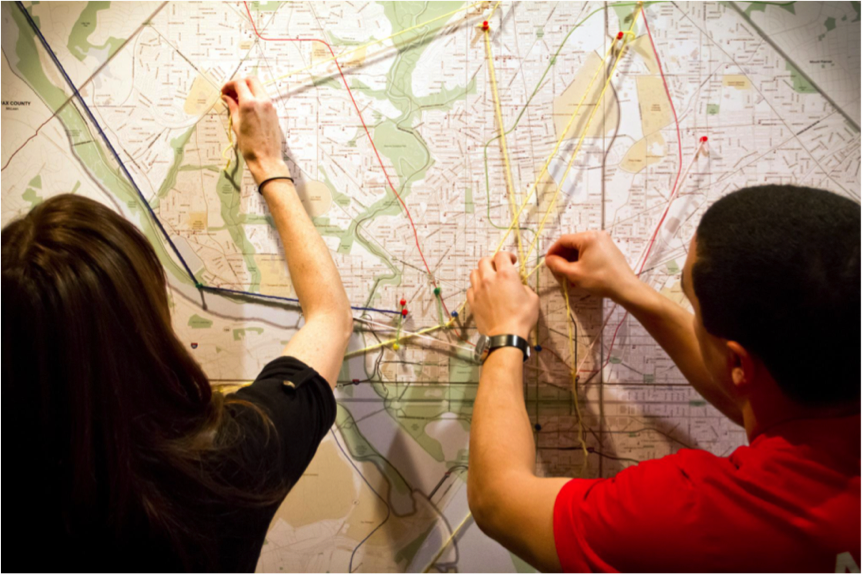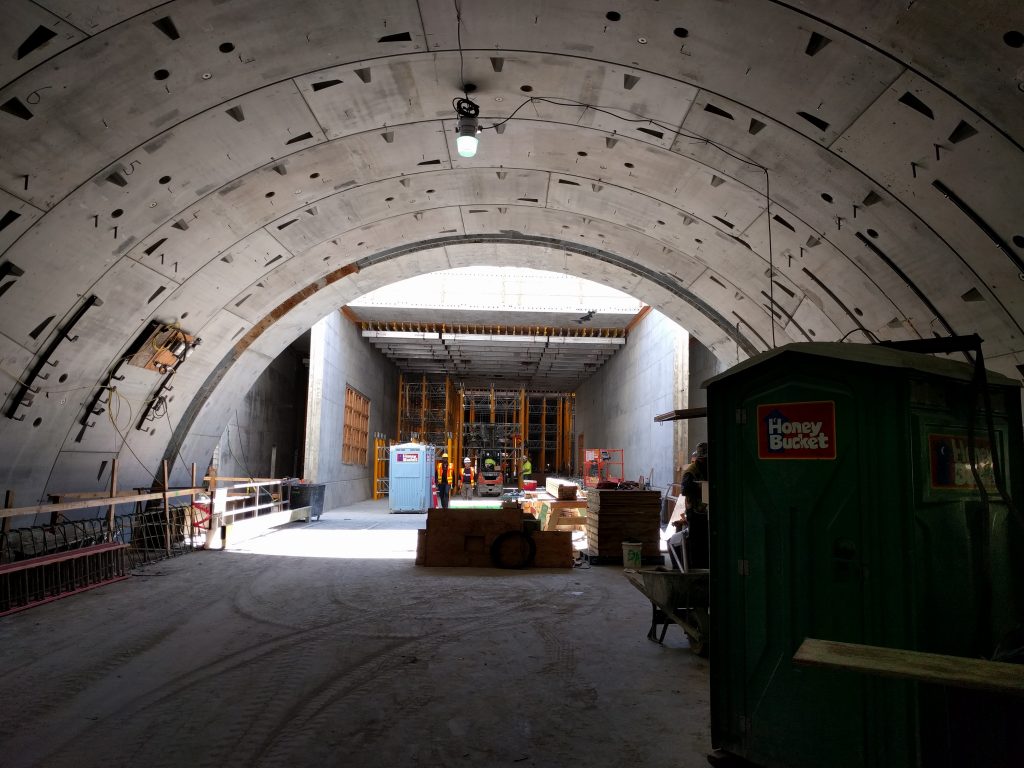
Last week, a delegation of elected officials, business and civic leaders, funders, and transportation advocates from Massachusetts traveled to Seattle to see firsthand the specific ways that Seattle is investing in transportation to build strong local communities, thriving neighborhoods, and growing businesses.
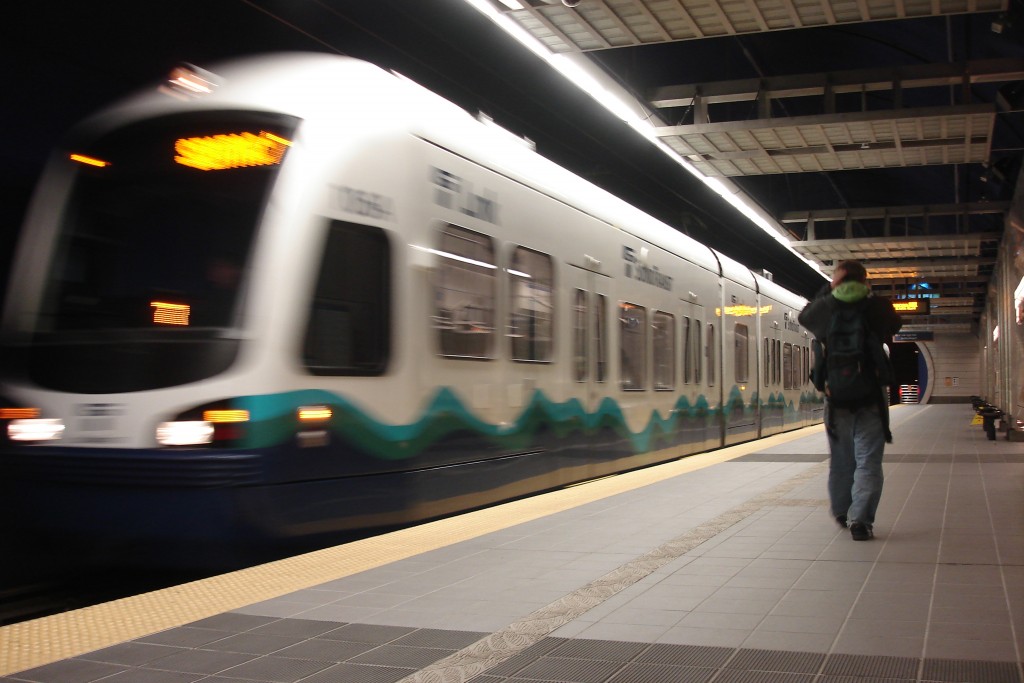
Sound Transit’s LINK light rail on the Seattle-SeaTac line. LINK is in the process of being expanded by a combination of local funds approved by voters and federal funds.
Supported by the Barr Foundation and in partnership with Transportation for Massachusetts, last week T4America led a delegation of local & elected leaders from Massachusetts to Seattle for a transportation study tour. And we saw an incredible range of things: from the huge new tunnel under the city, to dockless bikeshare, to a growing light rail system, and everything in between, these Massachusetts leaders were inspired and received practical advice for making ambitious investments in transportation.
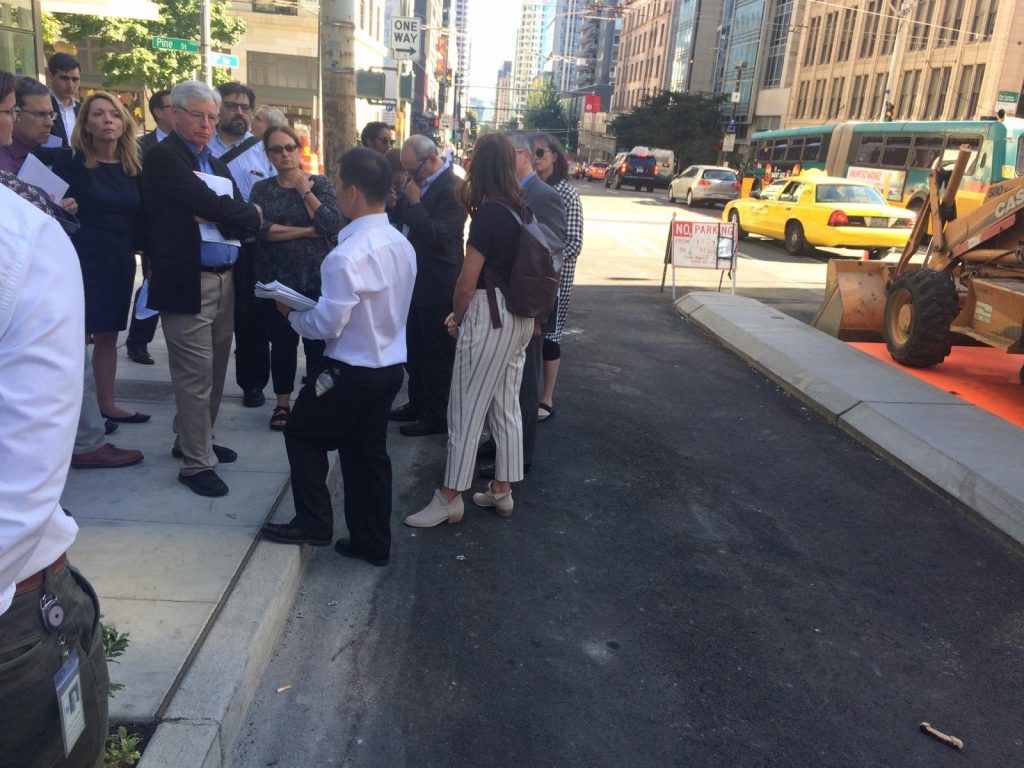
Seattle City Traffic Engineer Dongho Chang shows the MA leaders some of the particulars about the design of new separated bike lanes in downtown Seattle.

The group took a tour of the new SR-99 tunnel under Seattle, being built to replace an earthquake-damaged viaduct that is a barrier between downtown and the Puget Sound waterfront.
From the SR-99 tunnel tour to Seattle’s growing experiments with dockless bikeshare, study tour participants spent as much time interacting with transportation projects as they did taking in practical lessons from Roger Millar (Secretary of Transportation, Washington), Josh Brown (Executive Director, Puget Sound Regional Council), Shefali Ranganathan (Executive Director, Transportation Choices Coalition), and Peter Rogoff (Chief Executive Officer, Sound Transit).
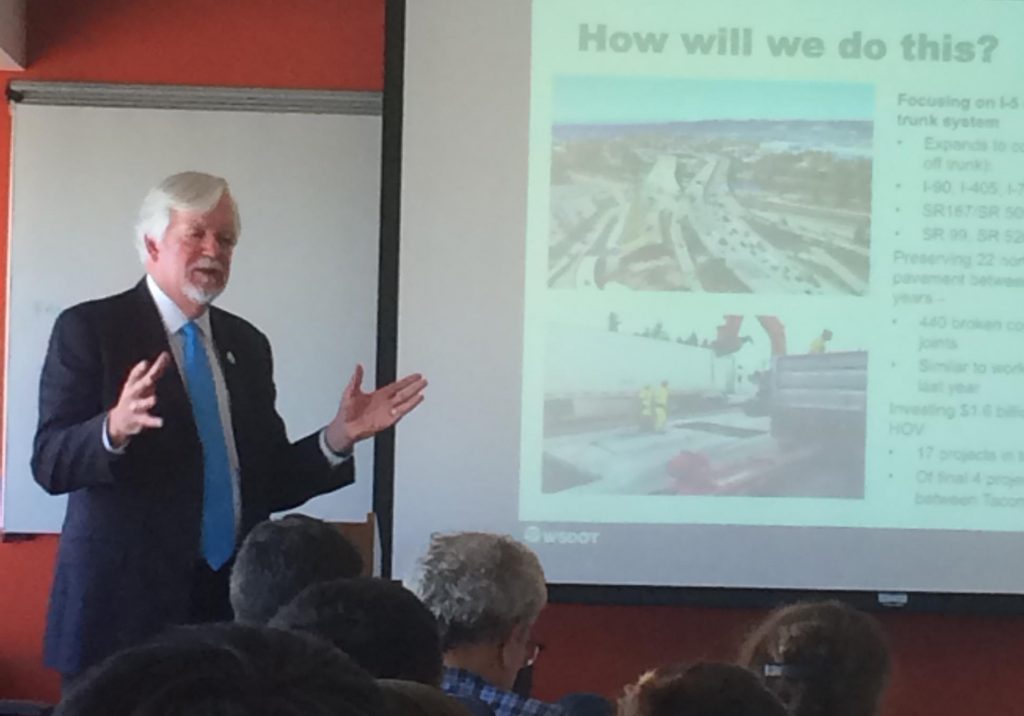
Roger Millar from WSDOT walks the participants through the state’s multimodal approach to transportation.
Woven in the various presentations on a range of topics was a common thread: how to be intentional to ensure that the transportation network is about putting people first and providing access to economic opportunity, education, and key services.
As we’ve profiled here before, there’s a long history of partnership and cooperation between agencies at various levels that makes Seattle’s success possible. Participants were wowed to hear the details of how the Washington State Department of Transportation, King County, Sound Transit, Seattle Department of Transportation, and the Puget Sound Regional Council all work together to ensure transportation investments reap economic dividends in one of the fastest growing regions in the country.
As participants rode the ferry, light rail, bus service, and used their phones to unlock the new dockless bikes, we heard the participants focusing their discussion on the policies and programs that currently don’t exist in Massachusetts — and what they’d like to replicate. Transportation ballot measures, dynamic pricing, tolling to manage congestion, HOT lanes, dockless bike-shares, commuter ferries, and dedicated transportation equity managers were all discussed as promising ideas to take back to Massachusetts.
Transportation for America looks forward to supporting these local leaders in Massachusetts for years to come.
Our thanks to the Barr Foundation and T4Mass for their support and leadership of the study tour.




